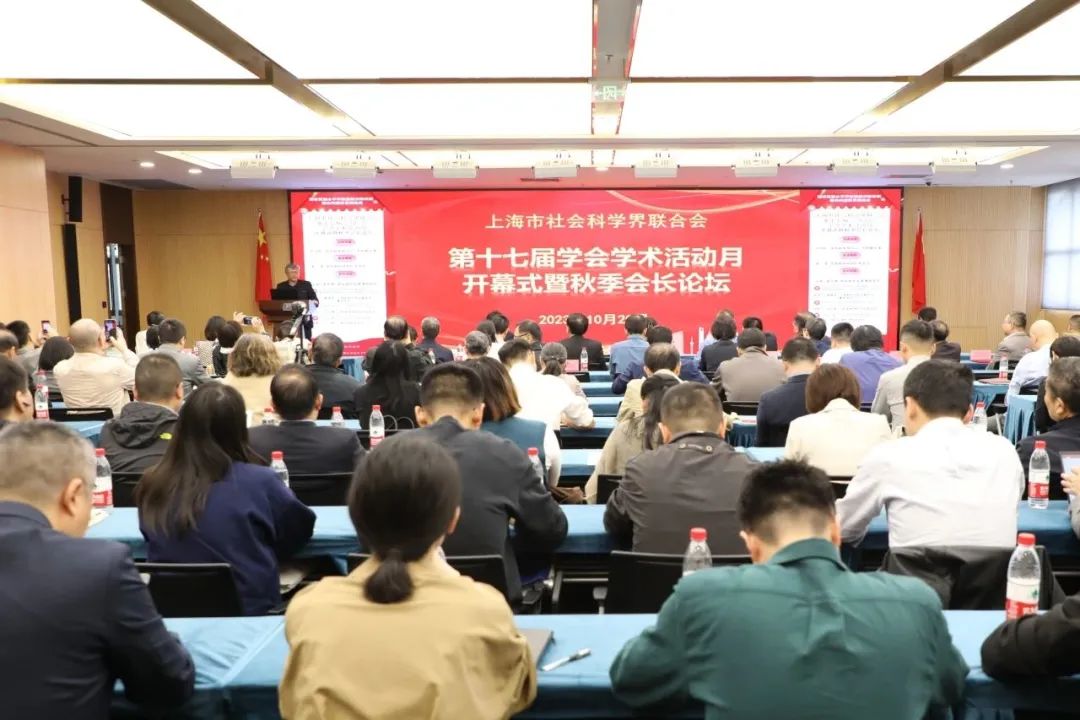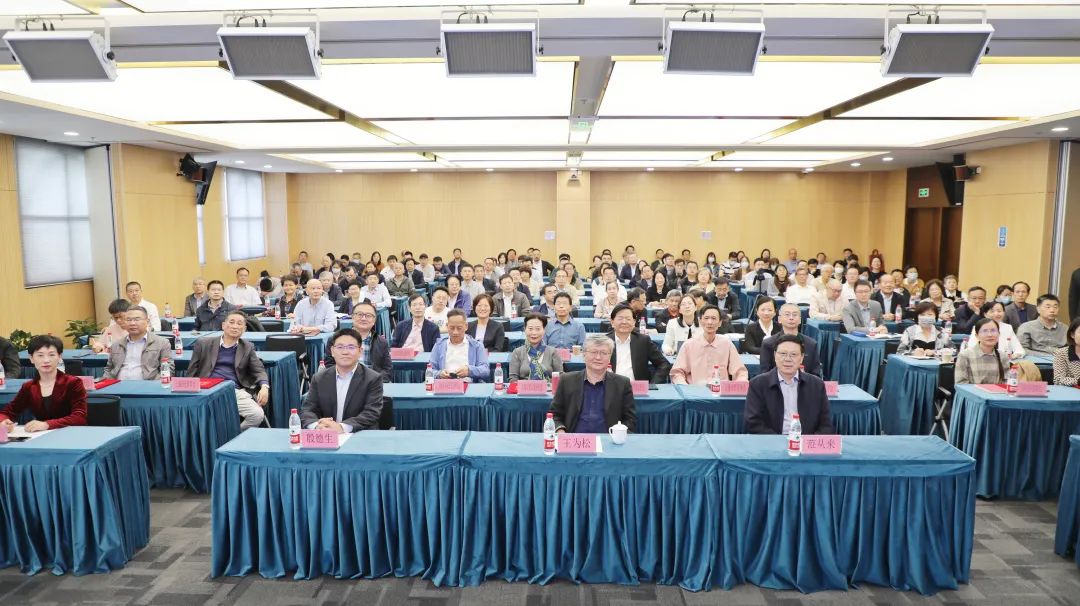Opening Ceremony of the 17th Academic Activity Month and Presidents’ Autumn Forum
On October 20th, Shanghai saw the opening of the 17th Academic Activity Month of the Shanghai Federation of Social Science Associations (“SSSA”), as well as the Presidents’ Autumn Forum with the theme of “Building a New System for a Higher-level Open Economy to Serve the Construction of a New Development Pattern”. Over 150 participants, including leaders of academic groups affiliated with the Shanghai Federation, representatives of experts and scholars, and CPC members and cadres of the Federation, attended the event.

Prof. Yin Desheng, Vice President of the Shanghai Economist Association and Dean of the School of Economics and Management of East China Normal University, pointed out that the development strategy of “Two-wings Soaring” in Shanghai is grounded in the mission of serving accelerated construction of a new development. This approach requires the Eastern Wing of Shanghai to focus on achieving the highest standards and best levels of global openness, while the Western Wing should focus on the high-quality integrated development of the Yangtze River Delta. Leveraging significant national platforms, it aims to build itself as an exemplary site of reform and opening up in the new era, serving as a strategic hub for the vigorous and active growth of the Yangtze River Delta. In conclusion, he outlined five major pathways for Shanghai in the new development pattern of an open economic system: 1) building a city of global consumption center to enhance the domestic circulation vitality; 2) promoting a higher level of opening up to improve the quality and level of international circulation; 3) exploring for creative paths for the growth of free trade zones; 4) strengthening the service capability of the new open economic system for the high-quality integration of the Yangtze River Delta; 5) actively participating in international rule games on behalf of China, especially in the formulation and leadership of rules for digital economy and trade.
Prof. Fan Conglai, President of the Jiangsu Market Economy Society and Director of the Yangtze River Delta Economic and Social Development Research Center at Nanjing University, provided a detailed analysis of the spatial economic interdependence among the major cities in the Yangtze River Delta. He emphasized that to promote economic integration, financial integration, whose key is the mobility of bank credit resources, must take precedence. He pointed out that Shanghai’s financial resources in serving the real economy necessitate its cooperation with Jiangsu, Zhejiang and Anhui Provinces while these provinces rely on Shanghai significantly for their high-quality development of the real economy through financial leverage. He put forward three major recommendations: firstly, allowing financial institutions to establish cross-regional operations within specific areas to facilitate the effective flow of credit resources across regions; secondly, integrating public credit information from industry and commerce, customs, communications, taxation, and social security to establish a regional credit system, providing credit guarantees for cross-regional credit resource operations; thirdly, establishing a regional supervisory linkage mechanism and strengthening functional regulation to provide an effective regulatory environment for the integrated allocation of regional credit resources.
Prof. Ding Chun, President of the Shanghai European Society and Director of the Center for European Studies at Fudan University, provided a progressive exposition on Sino-European relations and the construction of a new open economic system from three perspectives: the current economic and political situations in Europe, the state of Sino-Europe relations, and the intersection of Europe, the Yangtze River Delta and open economy. As major economies supporting free trade, both China and the European Union play crucial roles in the global economic recovery. Prof. Ding characterized the current state of Sino-Europe relations as warm economy-wise, but cold politically with signs of improvement, suggesting that both sides should enhance mutual understanding, seek common ground while respecting differences, and patiently strengthen the economic and trade cooperation between China and Europe. He also emphasized that, “Europe's experience can inspire the integration of the Yangtze River Delta. The Shanghai Free Trade Zone can also learn from the comprehensive investment agreement that has already been negotiated between China and the EU so as to further promote openness”.


